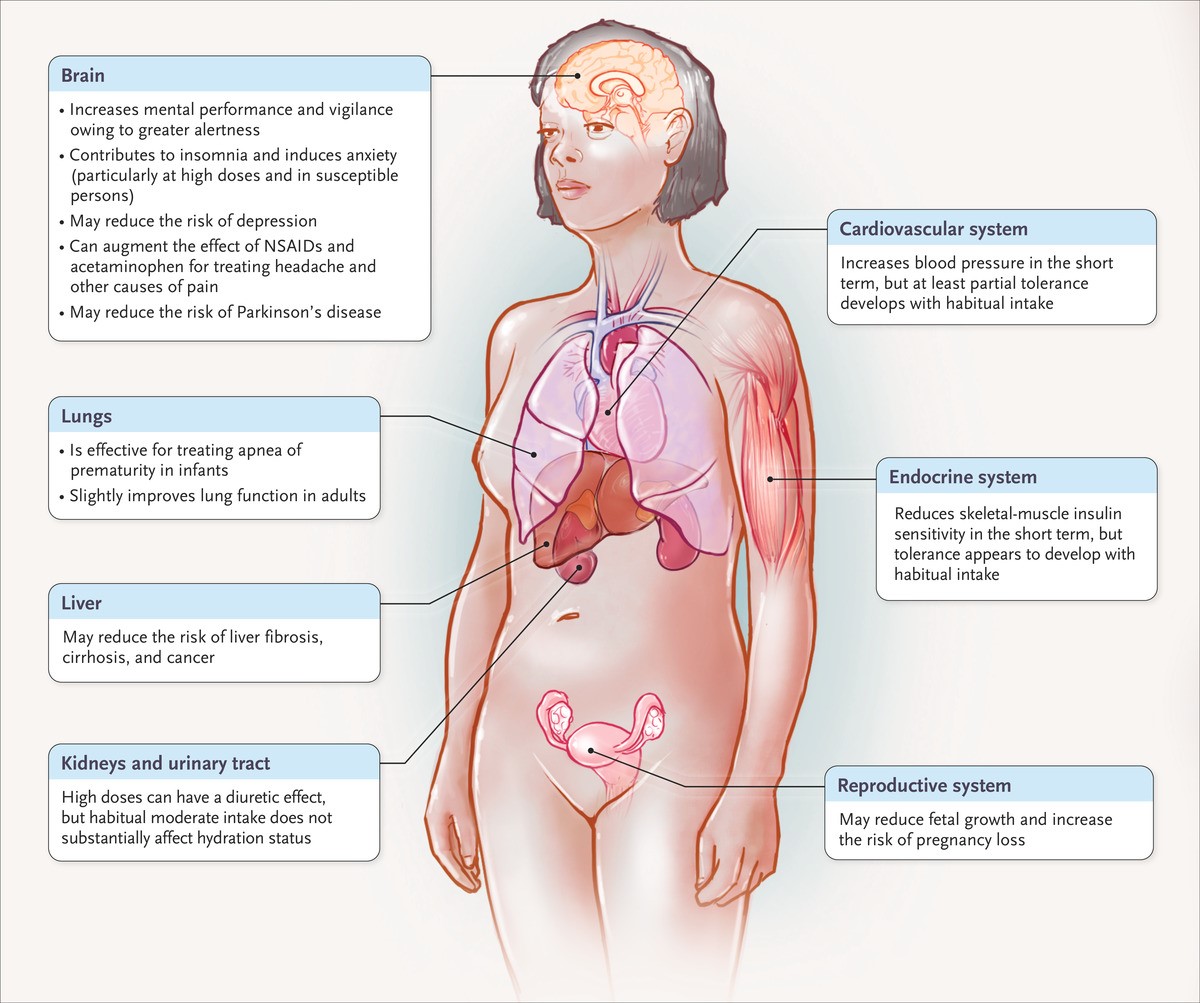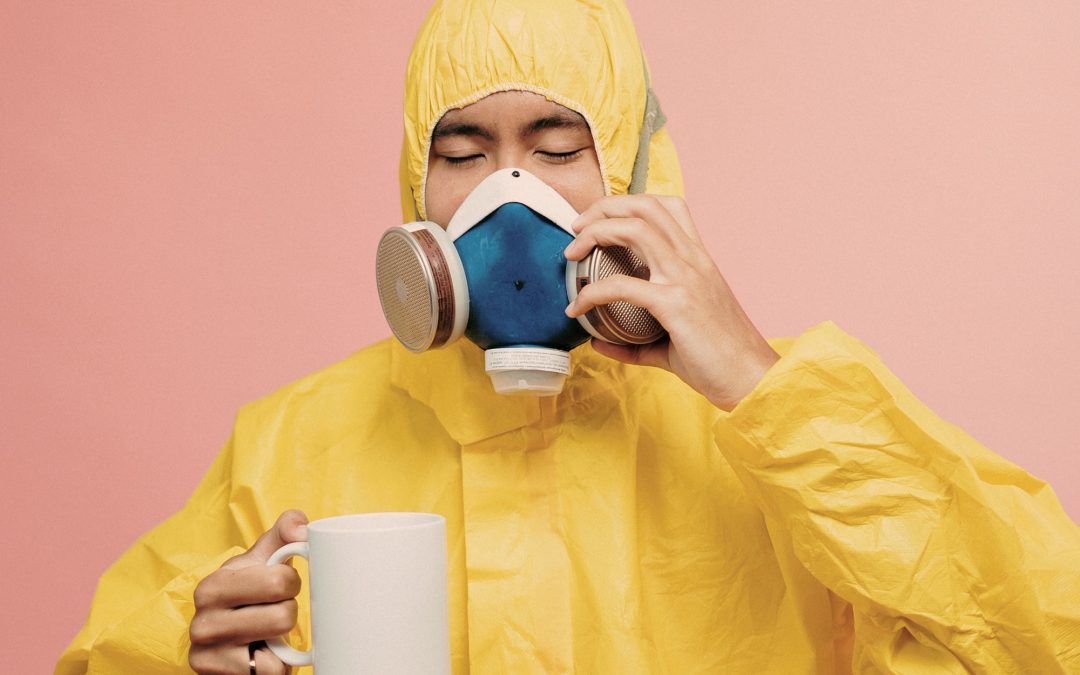IS COFFEE HEALTHY? – A DOCTOR’S REVIEW.
What a pleasant surprise it was this morning to find, among the thousands of daily medical publications amid the COVID-19 pandemic, most of them referring to the illness, a review article on coffee and its health effects published today July 23rd 2020 in The New England Journal of Medicine (NEJM). The review article, titled Coffee, Caffeine, and Health (DOI: 10.1056/NEJMra1816604) comes as a breath of fresh air with great news, not only for us coffee lovers but to the entire scientific community as it lists the many crucial discussion points based on current evidence leaving us with clear, dependable information on the benefits and the risks of coffee and caffeine on health. You can read my previous blog entry from January this year on the same subject.
The article was written by Rob M. van Dam, Ph.D., Frank B. Hu, M.D., Ph.D., and Walter C. illett, M.D., Dr.P.H. from the Saw Swee Hock School of Public Health and Yong Loo Lin School of Medicine, National University of Singapore and National University Health System, Singapore (R.M.V.D.); and the Departments of Nutrition (R.M.V.D., F.B.H., W.C.W.) and Epidemiology (F.B.H., W.C.W.), Harvard T.H. Chan School of Public Health, and the Channing Division of Network Medicine, Department of Medicine, Brigham and Women’s Hospital and Harvard Medical School (F.B.H., W.C.W.) — both in Boston.
The following was extracted from some of the main points the authors have reviewed:
BENEFICIAL EFFECTS ON COGNITIVE PERFORMANCE AND PAIN
In moderate doses (40 to 300 mg), caffeine can antagonize the effects of adenosine and reduce fatigue, increase alertness, and reduce reaction time. These effects of caffeine have also been observed in persons who do not habitually consume caffeine and after short periods of abstinence in habitual consumers. Caffeine intake can also improve vigilance during tasks of long duration that provide limited stimulation, such as working on an assembly line, long-distance driving, and flying aircraft. Caffeine can contribute to pain relief when added to commonly used analgesic agents.
EFFECTS ON SLEEP, ANXIETY, AND HYDRATION AND WITHDRAWAL SYMPTOMS
Caffeine consumption later in the day can increase sleep latency and reduce the quality of sleep. Also, caffeine can induce anxiety, particularly at high doses (>200 mg per occasion or >400 mg per day) and in sensitive persons, including those with anxiety or bipolar disorders.
Quitting caffeine intake after habitual consumption can lead to withdrawal symptoms, including headaches, fatigue, decreased alertness, and depressed mood, as well as influenza-like symptoms in some cases. These symptoms typically peak 1 to 2 days after cessation of caffeine intake, with a total duration of 2 to 9 days, and can be reduced by gradually decreasing the caffeine dose.
TOXIC EFFECTS
Side effects of caffeine at very high levels of intake include anxiety, restlessness, nervousness, dysphoria, insomnia, excitement, psycho-motor agitation, and rambling flow of thought and speech. Caffeine poisoning from consumption of traditional sources of caffeine such as coffee and tea is rare because a very large amount (75 to 100 standard cups of coffee) would have to be consumed in a short time for the dose to be fatal. Caffeine-related deaths have generally been due to very high doses of caffeine from tablets or supplements in powdered or liquid form, mostly in athletes or patients with psychiatric disorders. Persons who consume energy drinks should thus be advised to check the caffeine content and avoid high consumption (>200 mg of caffeine per occasion) or consumption in combination with alcohol.
BLOOD PRESSURE, BLOOD LIPIDS, AND CARDIOVASCULAR DISEASES
Blood pressure: No substantial effect on blood pressure was found in trials of caffeinated coffee, even among persons with hypertension, possibly because other components of coffee, such as chlorogenic acid, counteract the blood-pressure–raising effect of caffeine. Similarly, coffee consumption was not associated with an increased risk of hypertension.
Cholesterol: Limiting consumption of unfiltered coffee (French press, Turkish, or Scandinavian boiled coffee) and moderate consumption of espresso-based coffee may help control serum cholesterol levels.
Cardiovascular disease: Findings consistently indicate that consumption of up to 6 standard cups of filtered, caffeinated coffee per day, as compared with no coffee consumption, is not associated with an increased risk of cardiovascular outcomes in the general population or among persons with a history of hypertension, diabetes, or cardiovascular diseases. In fact, coffee consumption was associated with a reduced risk of cardiovascular diseases, with the lowest risk for 3 to 5 cups per day. An inverse association has been observed between coffee consumption and coronary artery disease, stroke, and death from cardiovascular causes.
WEIGHT MANAGEMENT, INSULIN RESISTANCE, AND TYPE 2 DIABETES
Weight management: Metabolic studies suggest that caffeine may improve energy balance by reducing appetite and increasing the basal metabolic rate and food-induced thermogenesis. Limited evidence from randomized trials also supports a modest beneficial effect of caffeine intake on body fatness.
Insulin resistance: consumption of both caffeinated and decaffeinated coffee reduces hepatic insulin resistance. Habitual coffee consumption has been consistently associated with a reduced risk of type 2 diabetes, with similar associations for caffeinated and decaffeinated coffee.
CANCER AND LIVER DISEASES
Cancer: Consumption of coffee and caffeine is not associated with an increased incidence of cancer or an increased rate of death from cancer. Coffee consumption is associated with a slightly reduced risk of melanoma, nonmelanoma skin cancer, breast cancer, and prostate cancer.
Liver diseases: Coffee has also consistently been associated with other aspects of liver health, including lower levels of enzymes reflecting liver damage and a lower risk of liver fibrosis and cirrhosis. Caffeine may prevent hepatic fibrosis; caffeine inhibits hepatocarcinogenesis in animal models, and consumption of caffeinated coffee reduces liver collagen levels in patients with hepatitis C.
LITHIASIS
Coffee consumption has been associated with a reduced risk of gallstones and of gallbladder cancer, with a stronger association for caffeinated coffee than for decaffeinated coffee, suggesting that caffeine may play a protective role. In U.S. cohorts, consumption of both caffeinated and decaffeinated coffee was associated with a reduced risk of kidney stones.
NEUROLOGIC DISEASES
Consumption of decaffeinated coffee is not associated with Parkinson’s disease, suggesting that caffeine, rather than other coffee components, accounts for the inverse association. In addition, caffeine prevents Parkinson’s disease in animal models. Coffee and caffeine consumption have also been associated with reduced risks of depression and suicide in several cohorts in the United States and Europe, although these findings may not hold in persons who have very high intakes (≥8 cups per day). Coffee consumption has not been consistently associated with the risk of dementia or Alzheimer’s disease.
ALL-CAUSE MORTALITY
Consumption of 2 to 5 standard cups of coffee per day has been associated with reduced mortality in cohort studies across the world and in persons of European, African-American, and Asian ancestry. With consumption of more than 5 cups of coffee per day, the risk of death was lower than or similar to the risk with no coffee consumption in large cohort studies, after adjustment for confounding by smoking status. Consumption of caffeinated coffee and consumption of decaffeinated coffee were similarly associated with a reduced risk of death from any cause.
EFFECTS OF CAFFEINE INTAKE DURING PREGNANCY
Higher caffeine intake has been associated with lower birth weight and a higher risk of pregnancy loss. Associations with low birth weight have been observed for both coffee and tea (in a predominantly tea-drinking population), and the association between caffeine and pregnancy loss was not significant at lower levels of intake. Although the evidence for adverse effects of caffeine on fetal health is not conclusive, prudence suggests limiting caffeine consumption during pregnancy to a maximum of 200 mg per day.

Effects of Caffeine Intake on Health, According to Organ System.
RM van Dam et al. N Engl J Med 2020;383:369-378.
CONCLUSION
A large body of evidence suggests that consumption of caffeinated coffee, the main source of caffeine intake in adults in the United States, does not increase the risk of cardiovascular diseases and cancers. In fact, consumption of 3 to 5 standard cups of coffee daily has been consistently associated with a reduced risk of several chronic diseases. However, high caffeine intake can have various adverse effects, and limits of 400 mg of caffeine per day for adults who are not pregnant or lactating and 200 mg per day for pregnant and lactating women have been recommended. A large majority of adults in the United States adhere to these guidelines, but because of person-to-person variation in metabolism and sensitivity to caffeine, a lower or somewhat higher amount may be appropriate in individual cases. Current evidence does not warrant recommending caffeine or coffee intake for disease prevention but suggests that for adults who are not pregnant or lactating and do not have specific health conditions, moderate consumption of coffee or tea can be part of a healthy lifestyle.
Written by Dr Josè Francisco Fernandez



Recent Comments